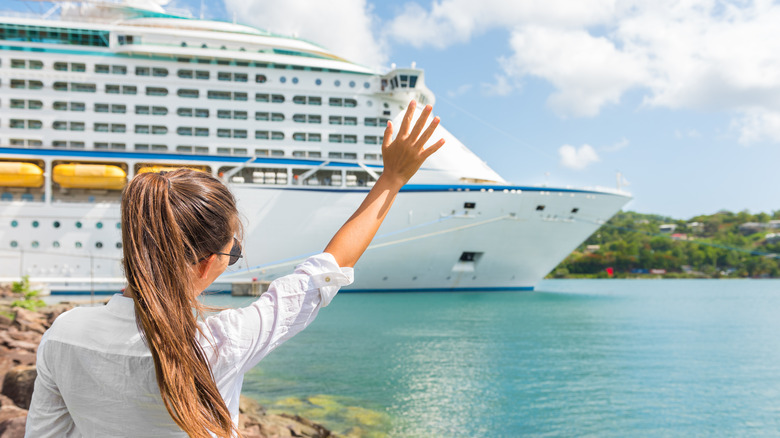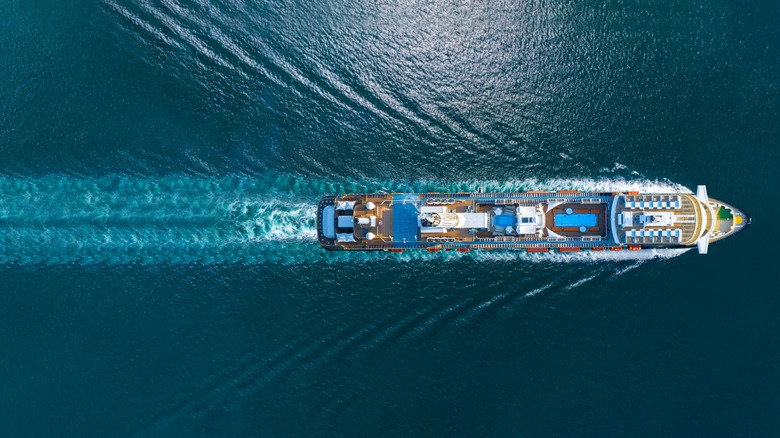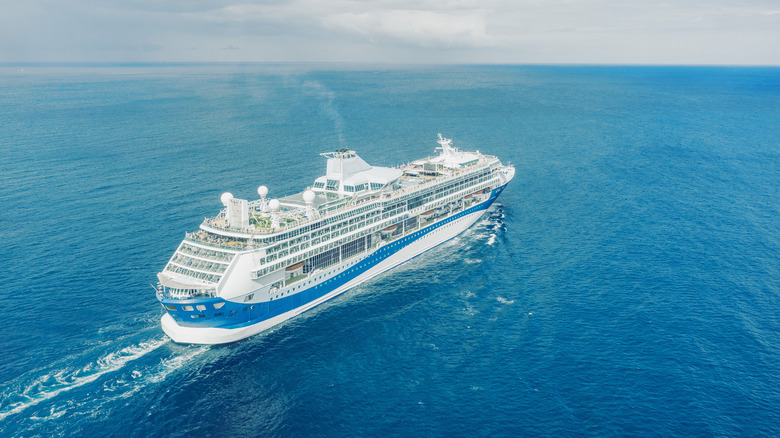It is every cruiser’s worst nightmare for their ship to leave without them. As well as the anxiety some feel about being stranded and needing to make new plans, rejoining your boat is rarely straightforward or easy to do, creating hassles, headaches, and extra costs. But unfortunately, it does happen. In March 2024, Independent reported that a Norwegian Cruise Line ship left eight passengers behind on the island of São Tomé and Príncipe after they missed the last tender to take them to the ship. They were late due to an independent tour that went over its time, leaving them stranded at the port.
It caused all sorts of problems for the group. They had no access to their medicines left in their cabins, and attempts to rejoin the cruise at the next port in The Gambia were nixed because low tides prevented the ship from docking. These stranded Norwegian Cruise passengers spent $5,000 trying to get back on the ship. Cruise companies advise that all guests arrive at the port 30 minutes before their ship is due to depart to prevent incidents like this. And yet, it can still happen, so let’s consider some of the reasons people miss their ride and what you can do if it happens to you.
Why do cruises leave without passengers?

Passengers left behind by cruise ships often can’t believe that it has happened, but there are reasons for it. For one, cruise ship calendars are scheduled a minimum of two years before their date of departure. They include bookings of dockers and pilots who help boats navigate through the port as well as dock the ship, and cruise companies pay penalty fees if there are any delays. Waiting for passengers can also impact fuel costs, as the ship would need to speed up to get to the next docking for its scheduled slot.
It also doesn’t make sense for a ship to spend thousands of dollars waiting for a few people when hundreds of thousands of other guests made it on time. However, if a significant number of passengers aren’t there because they are on a tour organized by the cruise line, then the ship will usually need to wait. This is because the cruise line would be responsible for getting all of those people back to the boat at their expense if they left without them. One common reason passengers miss their boats is that their watches are not adjusted to the local time, especially in places like Europe where there are differences between neighboring countries. This is why the best way to avoid getting left behind is to make sure your watch is set to the ship’s time.
What happens if you miss your boat?

If you miss your ship, they will know you’re not on board because your key card will not have been scanned on your return. A member of staff will also search the port for errant passengers, so if you think you may be running late, call your ship to make sure that they know you’re coming. Once the ship leaves, stranded passengers will be in the hands of the port agent, who may be given your passport and other documents. While your cruise agent will help you as much as they can, you will need to pay for travel and accommodation out of your own pocket, before you get back to the boat.
In some areas of the world, it is much easier to rejoin your boat than in others. For those traveling in Europe, it may be relatively simple to handle last-minute itinerary changes due to EU visa rules and short distances between ports. Elsewhere, it is more complicated, as countries may be islands that aren’t connected, travel distances are long, and visa requirements differ between them. One thing you should never do if you miss your boat is try to swim to it, as a 65-year-old cruiser named Susan Brown attempted to do in 2016, according to The Telegraph. Thankfully, a Portuguese fisherman rescued her. The most important thing to know before taking a cruise is that it is not worth risking your life to get on a ship.

